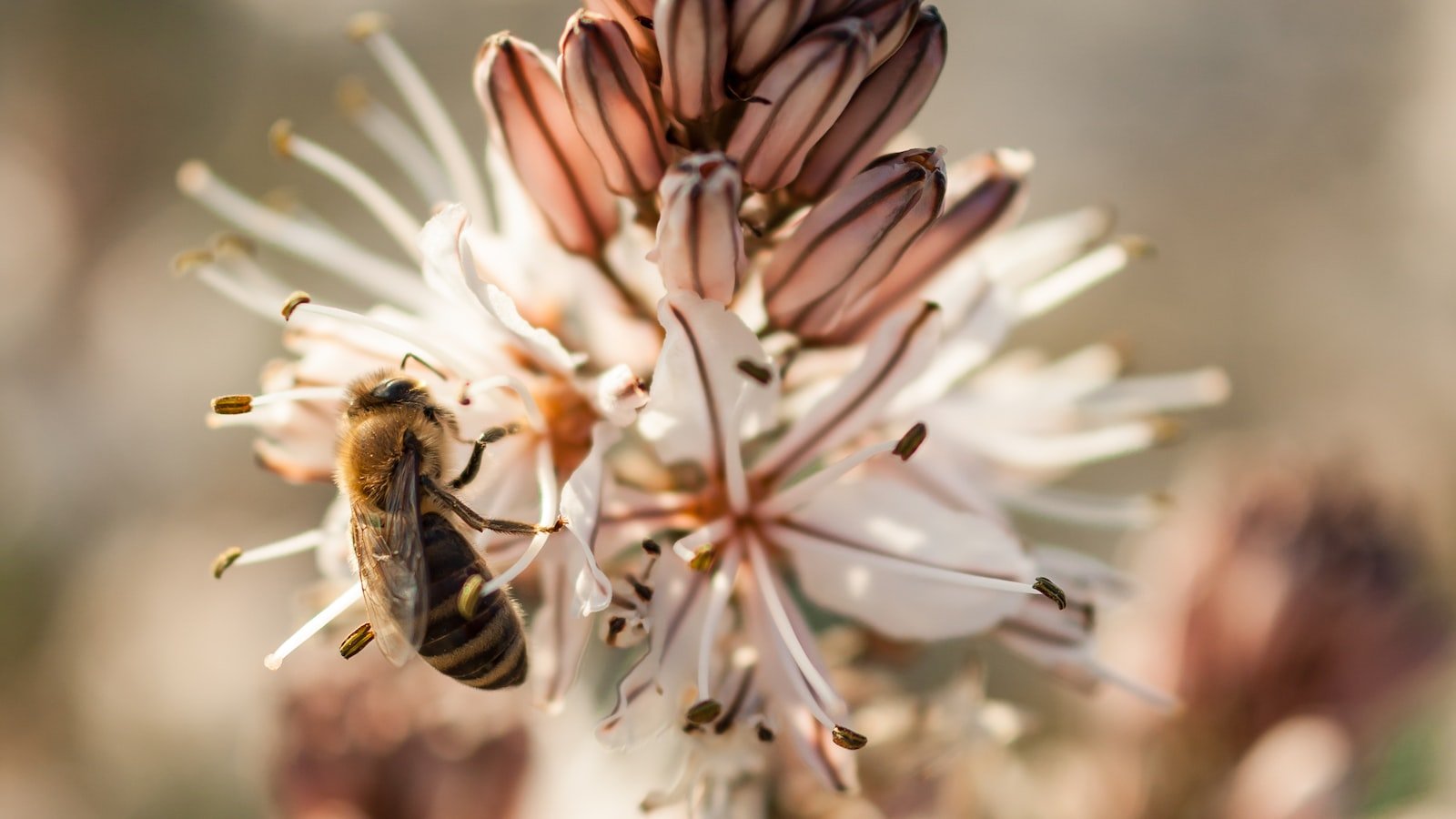The honeybee, a tiny yet essential creature, has captivated the attention of humans for centuries with its intricate social structure and remarkable role in pollination. Naturally, the well-being of these industrious insects is of great concern to beekeepers and researchers alike. One intriguing avenue of exploration lies in the potential impact of probiotics on bee health. Probiotics, well-known for their positive effects on human gut health, have recently emerged as a promising tool to bolster the immune systems of these vital pollinators. In this article, we delve into the fascinating world of the bee microbiome and uncover the role that probiotics may play in supporting the well-being of our buzzing friends. Through a combination of scientific inquiry and creative insights, we embark on a journey to understand how these tiny microbial allies might hold the key to safeguarding bee populations and ultimately, our own fragile ecosystems.
Table of Contents
- Probiotics: A Glimpse into the Microbial World of Bees
- Boosting Bee Immunity: How Probiotics Can Help
- The Link between Healthy Gut Microbiota and Bee Wellness
- Probiotic Applications: Strategies for Promoting Bee Health
- Considerations for Implementing Probiotics in Beekeeping Practices
- Q&A
- To Conclude

Probiotics: A Glimpse into the Microbial World of Bees
Bees, nature’s industrious pollinators, are not only responsible for producing honey and beeswax, but they also play a crucial role in maintaining the balance of ecosystems. However, their well-being can be threatened by various factors, including pesticides, diseases, and habitat loss. Interestingly, recent studies have shed light on another aspect of bee health that often goes unnoticed – their microbial world.
Just like humans, bees host a diverse range of microorganisms within their bodies, contributing to their overall well-being. These beneficial microbes, known as probiotics, have been found to help bees in various ways. They aid in digestion, enhance nutrient absorption, and even provide protection against harmful pathogens. Moreover, research indicates that bees with a more diverse and resilient microbial community are better equipped to fight off infections and resist environmental stressors.
Understanding the intricacies of the bee microbiome has become a fascinating area of research. Scientists are exploring ways to harness the power of probiotics to promote bee health and combat the declining bee populations. By identifying specific strains of beneficial bacteria, researchers hope to develop targeted interventions and innovative solutions that could help save these vital pollinators. So the next time you see a bee buzzing around your garden, remember that beneath its tiny wings lies a world of microbes that are crucial for its survival.

Boosting Bee Immunity: How Probiotics Can Help
Bees play a crucial role in pollination and maintaining a healthy ecosystem. Unfortunately, these amazing insects are currently facing numerous challenges, including stress, disease, and exposure to pesticides. One promising solution to support their overall health and immune system is the use of probiotics.
Probiotics, often referred to as “good bacteria,” have gained recognition for their ability to promote and maintain a healthy gut in various organisms. Similarly, incorporating probiotics into bee nutrition can enhance the intestinal microbial balance, strengthen their immune system, and increase their resistance to disease.
Here are a few key ways in which probiotics can benefit bees:
- Improved Gut Health: Probiotics can optimize the microbial population in bee guts, leading to better digestion and absorption of nutrients.
- Enhanced Disease Resistance: Certain strains of probiotics can effectively inhibit the growth of harmful pathogens, reducing the risk of infections and diseases in bees.
- Reduced Stress: Just like humans, bees can experience stress that weakens their immune system. Probiotics can help alleviate stress by promoting a healthy gut-brain axis.
While further research is needed to fully understand the benefits and mechanisms of using probiotics for bee immunity, early studies indicate promising results. By harnessing the power of probiotics, beekeepers and researchers are taking a step towards ensuring the well-being of these vital pollinators and the ecosystems they support.

The Link between Healthy Gut Microbiota and Bee Wellness
Gut health has become a popular topic in recent years, and for good reason. Our gut is home to trillions of bacteria, yeast, and other microorganisms collectively known as the gut microbiota. These tiny organisms play a crucial role in maintaining our overall health and well-being.
But did you know that gut microbiota is not only essential for us humans, but also for honeybees? Yes, you read that right – even bees rely on a healthy gut microbiota for their wellness!
Bees have a similar digestive system to humans, with compartments that host a diverse community of gut bacteria. These bacteria are essential for the digestion and absorption of nutrients in bees, enabling them to produce honey, royal jelly, and other important substances. Moreover, a diverse gut microbiota also helps bees to fight off pathogens and boost their immune system.
Just like in humans, an imbalance in the gut microbiota can have detrimental effects on bee health. Factors such as pesticide exposure, stress, and a lack of diverse food sources can disrupt the delicate balance of bacteria in their guts. This can result in weakened immune systems, increased susceptibility to diseases, and overall decline in bee populations.
Therefore, it is crucial for beekeepers and environmental enthusiasts to understand . By promoting a diverse and balanced gut microbiota through organic beekeeping practices, providing diverse forage options, and minimising the use of harmful pesticides, we can protect and support the health of these incredible pollinators.
Next time you enjoy a spoonful of honey, take a moment to appreciate the role of gut microbiota in bee wellness. It’s a fascinating connection that reminds us of the intricate and interconnected nature of our world.

Probiotic Applications: Strategies for Promoting Bee Health
Bee health is crucial for sustaining ecosystems and ensuring food production. However, bee populations have been declining in recent years, highlighting the need for effective strategies to promote their well-being. This post explores the application of probiotics as a promising approach to enhance bee health.
1. Enhancing nutrition: Probiotics can be utilized to boost the nutritional profile of bee diets. By enriching pollen or nectar with beneficial bacteria, such as Lactobacillus acidophilus, bees can receive essential nutrients and vitamins. This dietary enhancement supports their immune system, making them more resilient to diseases and parasites.
2. Strengthening immunity: Probiotics also play a crucial role in promoting bee immunity. Certain strains of beneficial bacteria have been shown to stimulate the production of antimicrobial peptides in bees, providing enhanced defense against pathogens. This immune-boosting effect ultimately contributes to stronger, healthier bee colonies.
3. Preventing pesticide damage: Exposure to pesticides is a major threat to bee health. However, probiotics have shown potential in mitigating the detrimental effects of these chemicals. By colonizing the bee gut with beneficial bacteria, probiotics help detoxify pesticides and reduce their negative impact on the bees’ digestive system, improving their overall well-being.
Considerations for Implementing Probiotics in Beekeeping Practices
When it comes to beekeeping practices, the use of probiotics can offer an array of benefits for both the bees and the beekeepers themselves. However, before diving into the world of probiotics in beekeeping, there are a few important considerations to keep in mind:
- The source of probiotics: It is crucial to choose probiotics that are specifically formulated for honeybees, ensuring they contain beneficial strains of bacteria and yeast that support the health of the hive. Using probiotics intended for other animals or humans may not provide the same positive effects.
- Proper storage and handling: To maintain the viability of probiotics, it is essential to store them in a cool and dry place, away from direct sunlight. Handling should be done with clean utensils to prevent contamination, and following expiration dates is crucial for optimal effectiveness.
- Frequency and dosage: The frequency and dosage of probiotic administration is a critical factor to consider. It is recommended to follow the instructions provided by the manufacturer or consult with experienced beekeepers or professionals to determine the best application methods and dosage for your specific hive.
By carefully considering these factors, beekeepers can successfully incorporate probiotics into their practices, promoting the overall health and vitality of their bee colonies. Probiotics can play a vital role in supporting the immune systems of bees, improving disease resistance, and enhancing their overall well-being.
Q&A
What are probiotics and why are they important for bees?
Probiotics are beneficial bacteria that promote digestive health and strengthen the immune system. In bees, probiotics play a crucial role in maintaining a healthy gut microbiome and enhancing their overall wellness.
How do bees benefit from probiotics?
Probiotics help bees break down and digest food more efficiently, ensuring optimal nutrient absorption. Additionally, these beneficial bacteria contribute to the production of essential vitamins and enzymes, resulting in improved immune function and increased resistance to diseases.
How are probiotics administered to bees?
Probiotics can be provided to bees through various means, including adding them to their food sources, such as pollen patties or sugar water. Alternatively, they can be applied in the form of dust or sprays, which bees come into contact with during their daily activities.
Are probiotics safe for bees?
Yes, when used appropriately, probiotics are generally safe for bees. They are naturally occurring and have been found to have positive effects on bee health. However, it is crucial to follow recommended dosage guidelines and choose probiotic strains proven to be beneficial for bees.
Can probiotics help prevent or treat bee diseases?
While probiotics alone cannot replace proper disease management practices, they can significantly contribute to disease prevention and support treatment efforts. Probiotics help maintain a balanced gut microbiome, which promotes bee health and boosts their ability to resist diseases.
Do all bee species respond equally well to probiotics?
Different bee species may have variations in their gut microbiomes, which can affect their response to probiotics. Therefore, it is essential to conduct research specific to each bee species to identify the most effective probiotic strains and dosages for optimal results.
Can probiotics enhance bee colony survival rates?
Yes, studies have shown that supplementing bees with probiotics can improve their chances of survival. By bolstering their immune systems and promoting overall wellness, probiotics contribute to stronger and more resilient colonies better equipped to withstand stressors and environmental challenges.
What is the future of probiotics in beekeeping?
As we continue to explore the intricate relationship between bees and their gut microbiomes, the potential applications of probiotics in beekeeping are promising. Probiotic research may lead to new ways of supporting bee health and reducing colony losses, ultimately helping sustain pollination and honey production in the long run.
To Conclude
As the honeybees dance their way back to their hives, buzzing with contentment and vitality, we are reminded of the extraordinary role probiotics play in their intricate world. From the gentle hum of nature’s harmony to the microscopic phenomena occurring within their tiny bodies, the connection between probiotics and bee wellness is an awe-inspiring testament to the wonders of nature.
Through this journey of exploration, we have delved into the depths of the bee colony, unearthing the pivotal role of these beneficial bacteria in maintaining the health and resilience of these vital pollinators. Like a secret guardian, probiotics work tirelessly to fortify the impenetrable fortress of the bee’s immune system, keeping invaders at bay and ensuring the survival of these mighty creatures.
In our quest to understand the secret language of bees, we discovered that probiotics, with their diverse range of microorganisms, hold the key to a thriving bee colony. These microscopic allies form a protective shield against infectious diseases, promoting optimal digestion, and fortifying the bee’s natural defenses. By maintaining a healthy gut, these industrious insects are better equipped to withstand the environmental challenges that threaten their existence.
But beyond the mesmerizing dance of microorganisms, the role of probiotics transcends the boundaries of the bee world. As mankind grapples with a rapidly changing environment, the vital lessons gleaned from the symbiotic relationship between bees and probiotics can inspire us to find solutions to our own health challenges. From strengthening our immune systems to mitigating the effects of harmful pathogens, the potential of probiotics is an untapped resource waiting to be further explored.
As we bid farewell to this enlightening exploration into the profound role of probiotics in bee wellness, let us not forget the interconnectedness of all living beings. Just as the bees tirelessly pollinate and support the fertility of the earth, probiotics silently work their magic, fostering a delicate balance that sustains life. May this knowledge guide us towards a future where we cherish and protect these tiny heroes of the natural world and harness their boundless potential for our own well-being.
As an affiliate, my content may feature links to products I personally use and recommend. By taking action, like subscribing or making a purchase, you’ll be supporting my work and fueling my taco cravings at the same time. Win-win, right?
Want to read more? Check out our Affiliate Disclosure page.